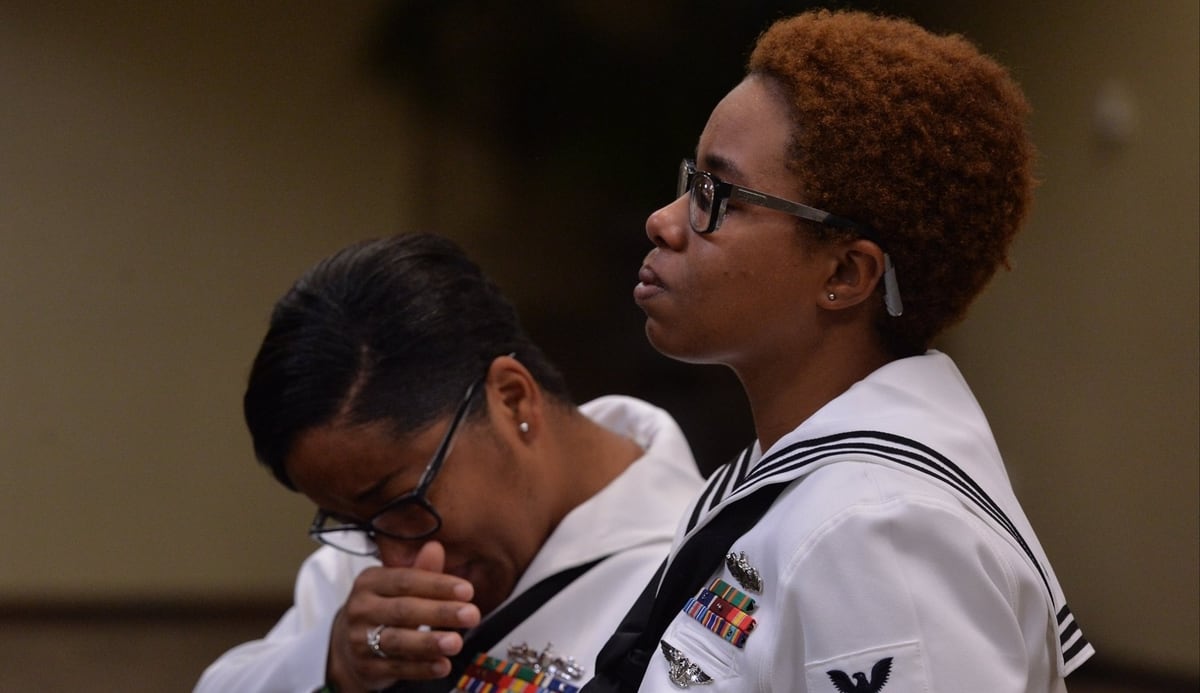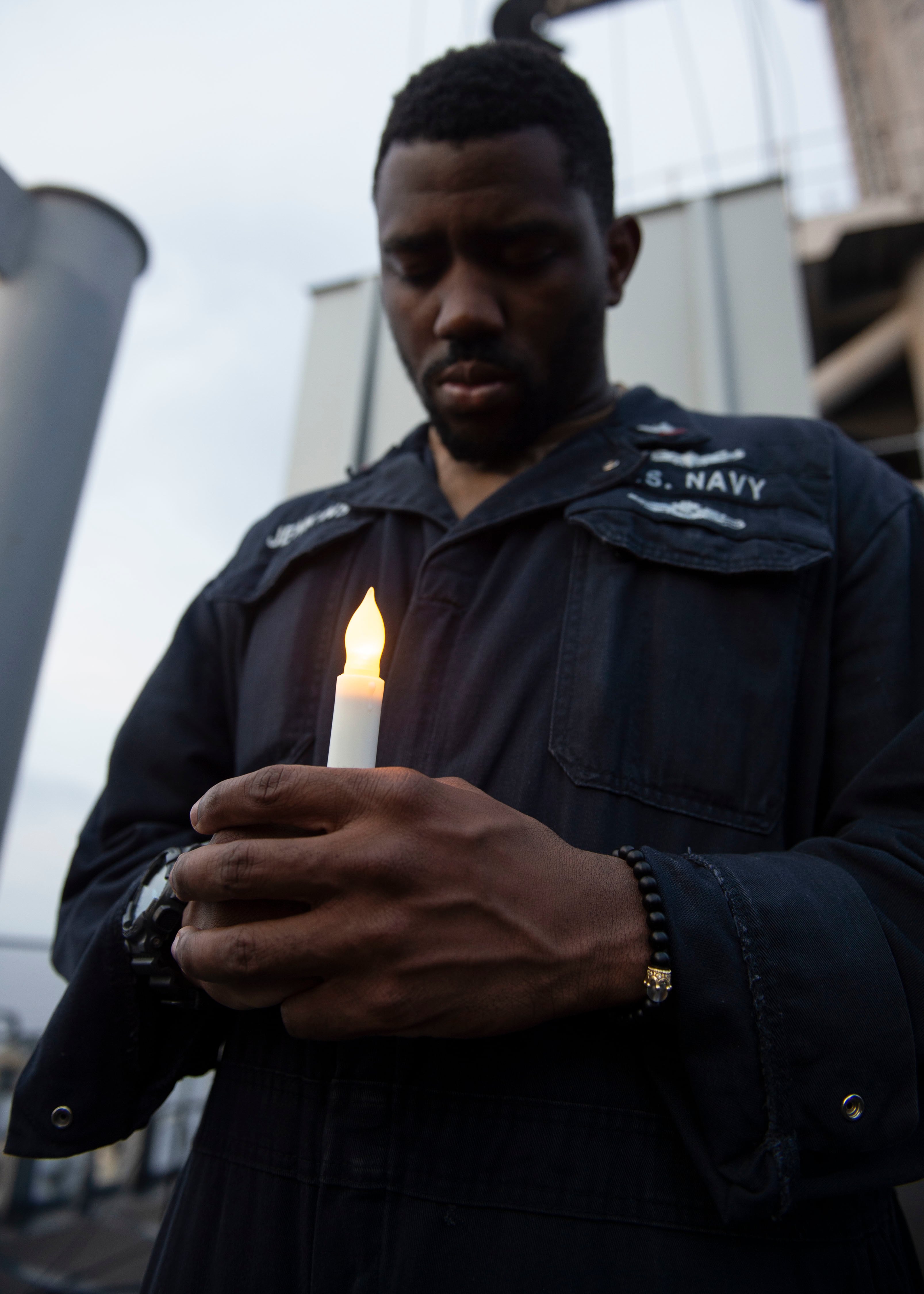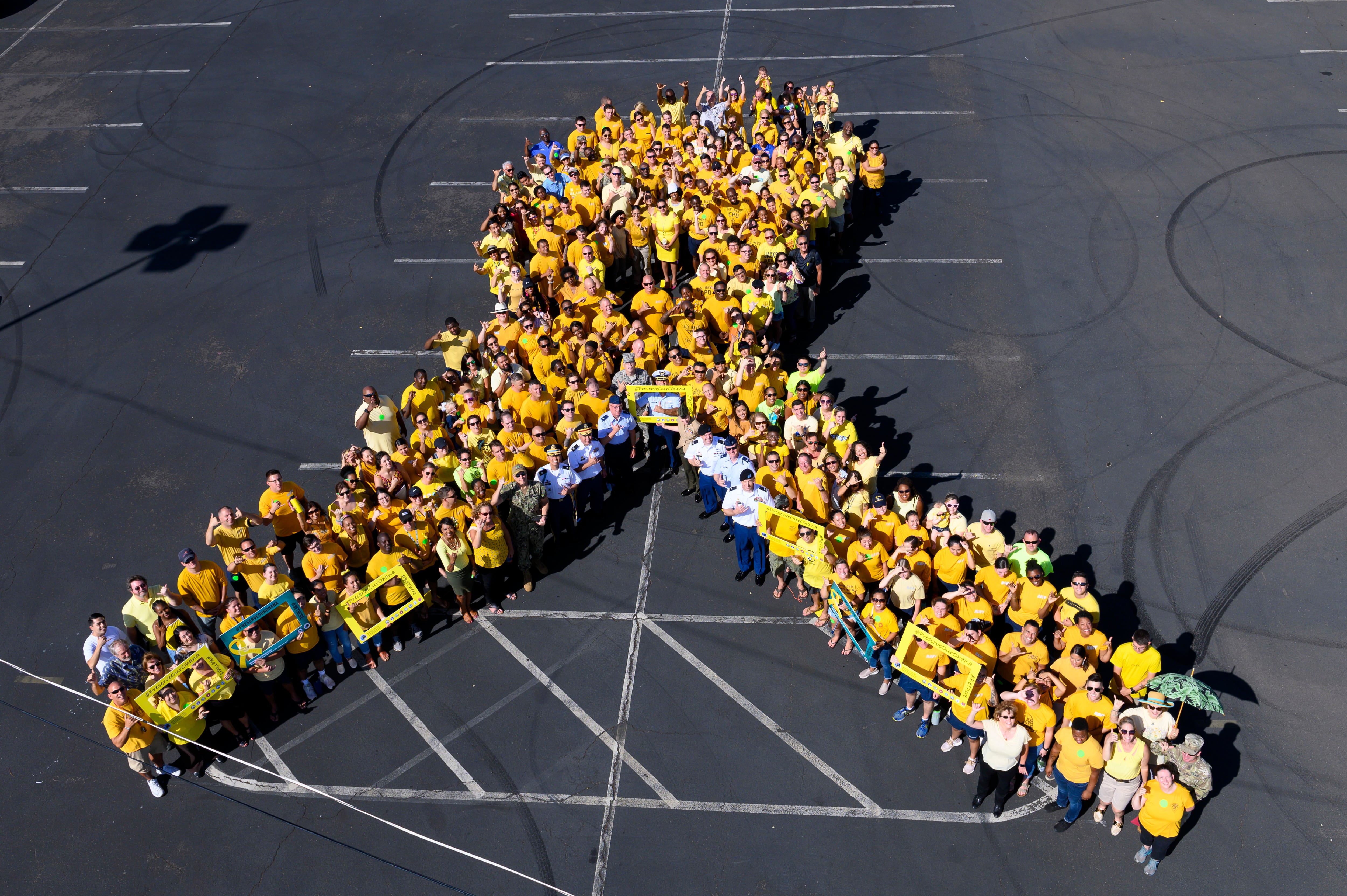I recently lost my father.
He was a well-spoken man and incredibly smart. He succeeded in a career that required a security clearance. If you met him, you’re probably surprised to find out that he also was diagnosed with paranoid schizophrenia.
Unmedicated, uncounseled and alone – his death was preventable. The stigma he harbored about asking for help would eventually claim his life. He died penniless and bed-ridden inside a state institution, the victim of a stroke brought on by his refusal to eat, drink or move as his mental illness consumed him.
As I’ve reflected on his life, I continue to see unfortunate similarities between his struggles and those experienced by so many sailors.
With the recent events on my former ship, the aircraft carrier George H. W. Bush, I am compelled to share our story, along with a message of hope.
RELATED

Like so many of our sailors today, my father was analytical to a fault, a man who could solve complex problems that most people couldn’t begin to understand. He would’ve been a great nuke!
Because his work on government contracts required the highest security clearances, he feared the professional and social repercussions from seeking help. He didn’t reach out during a divorce, when he lost a job, before a move, when separated from his family or when caught in spiraling debt.
Those harsh events compounded over time, eventually triggering a mental breakdown. He no longer realized he even had a problem, let alone understood that he needed help.
His only surviving relative, as a Midshipman I had to commit him to a mental health treatment facility. It remains the most difficult action I’ve ever taken.
But it saved his life.
My father was a hard man to love. In his wake flowed broken relationships and splintered spirits. His schizophrenia and depression still affect me, even after his death.
And so, I get help.

I’ve received counseling off and on from both therapists and pastors for years to help me cope with the pain, worry and regret that shadowed my father’s life, plus the trials and tribulations that tested me daily.
You can reach out for help and still find professional success at every level of your career. Too often, we don’t hear many examples of this, especially as nukes.
Instead, we watch those who need mental health care whisked off the ship, never to return. Or we confront sailors who sent their concerns up the chain of command, only to be told to “gut it out” or that it’s “all in your head.”
Those same leaders would never tell shipmates with broken ankles to gut it out, or that it’s all in their ankles. They’d send them to get the medical treatment they need to return to health.
People aren’t built to go it alone, something the underwater service has learned. The submarine community has enjoyed tremendous initial success with their resiliency program, both for their crews and individual service members.
I recently spoke with Submarine Force Pacific’s force psychiatrist, who pointed to the mental health care workers embedded with the crews. Ensuring timely access to professional caregivers helps sailors cope with everyday problems while focusing treatment on those with mental illness.
This approach has slashed SUBPAC’s annual unplanned losses for nuclear sailors by 93 percent. That’s equivalent to one sub crew saved annually —$19 million in annual training costs alone.
The best practices learned from this program should be implemented across the Fleet.

For those of you who are leaders of sailors, this is your charge.
For the sustained might of our Navy, for the care and well-being of those sailors entrusted to you, you must remove the stigma of mental health care by fostering a healthy and non-discriminatory work environment where sailors can ask for help and receive it.
If you’re a sailor who needs help, I urge you to ask for it. I know that’s hard. If you’re like me, you probably wish the help would arrive automatically without having to admit you need it.
I was like that after my father died and memories I thought I’d buried from caring for him began to resurface. I wished that people would’ve just seen my internal struggles.
Therapists call this the “illusion of transparency,” this notion that others around us can empathize with our pain because of the magnitude of time and space they already occupy in our minds.
But the only way through that mirage is to ask for help. It’s the first, and the hardest, step to getting back to your right mind.
Chances are, you probably can rattle off a list of resources already available to you — your chain of command, medical, chaplain, Fleet & Family Support Center. So let me offer a couple of phone numbers you might not have.
The first is the Military Crisis Line at (800) 273-8255. It’s free, confidential and serves all veterans, service members (active, guard, and reserves), and their family and friends.
It’s not merely for those who have suicidal thoughts. It’s for anyone who needs mental heath support. So if you feel anxious or alone or not sure where to turn for help, call the number.
Another service available to active, guard, and reserve service members and their families is the free, face-to-face, confidential, non-medical counseling offered by Military OneSource at (800) 342-9647.
Lastly, if my story resonates with you, as a nuclear surface warfare officer who’s wrestled with depression and lived with the effects of severe mental illness and gone on to have a successful career, please reach out to me at (831) 521-4594 or Matthew.D.W.Phillips@gmail.com.
The Navy, your command, and your family need you to live your best life, in your right mind.

Cmdr. Matthew D.W. Phillips is a surface warfare officer (nuclear) serving as a personnel policy adviser in the Office of the Secretary of Defense. He graduated with honors from the U.S. Naval Academy and the Naval Postgraduate School. A former White House Fellow, he served on board the guided-missile frigate Nicholas and the aircraft carrier George H.W. Bush. His views do not necessarily represent those of the Department of Defense, Navy Times or its staffers.





